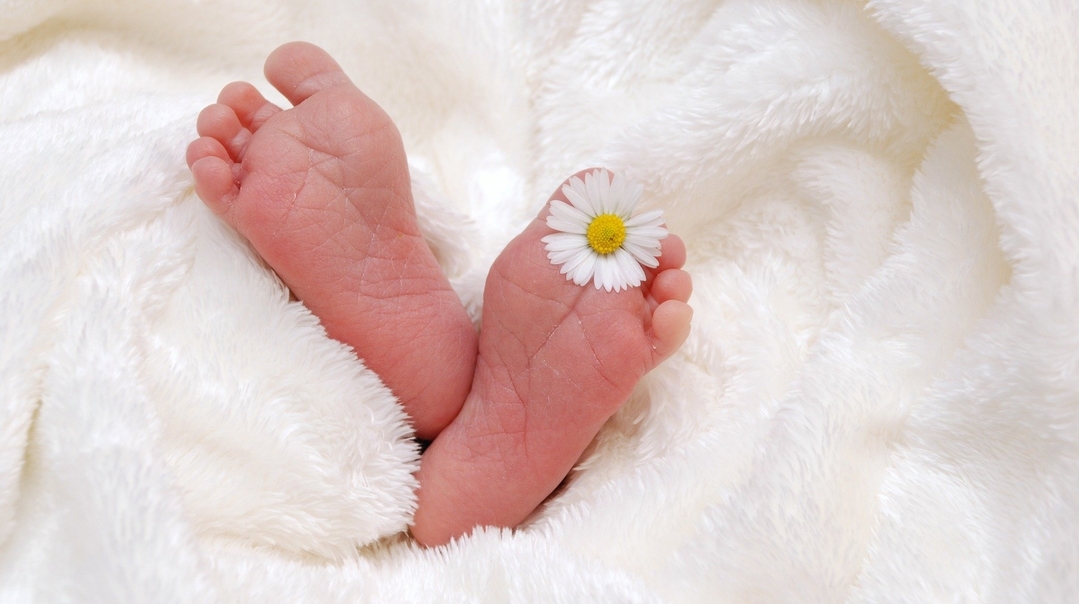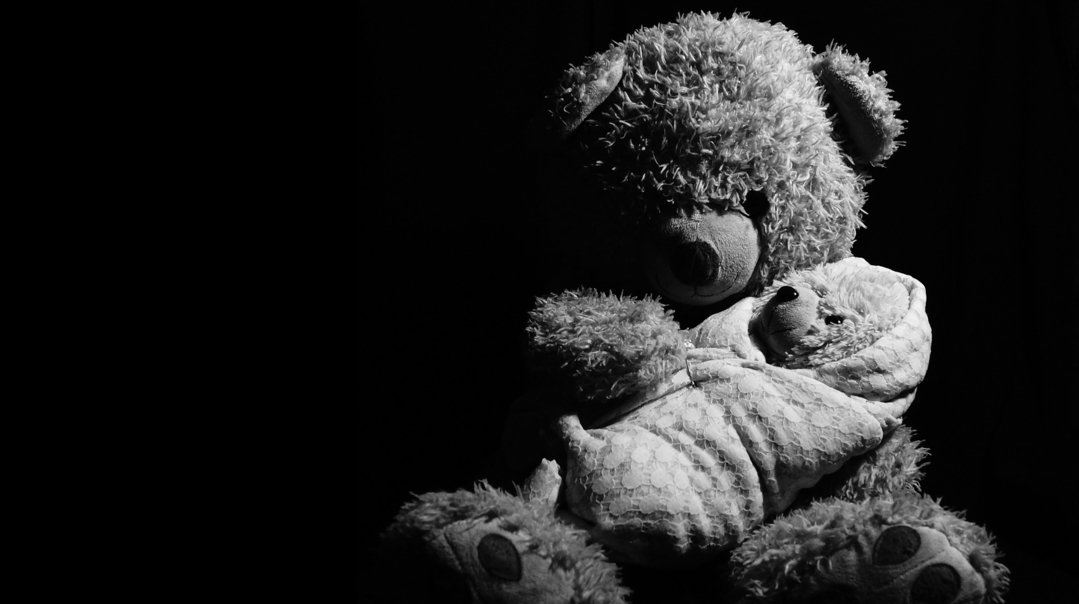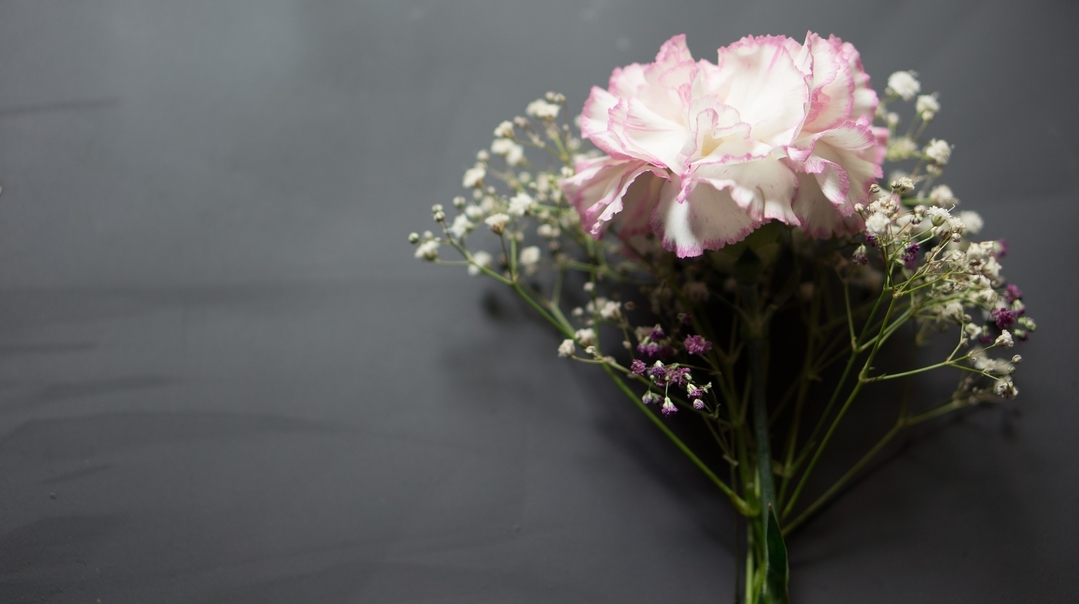Learning to Mother

I desperately want to love her. But I don’t know how

You should be feeling something. Joy, love, connection. What kind of a mother feels nothing? You are a failure. You’ve failed your daughter. She’s just been born, and already you’re a terrible mother. Why did you ever think you could be different?
I sit with my week-old daughter Baila in my arms. Excited babble of family and friends fill the room. But all that I hear is a thundering voice of condemnation. Every time I look at the baby and I don’t feel what I should, the voice screeches. Every time she doesn’t respond to my attempts to calm her, the gavel bangs.
I desperately want to love her.
But I don’t know how.
You just need to get out alone, I tell myself. It’s too intense for anyone to be with a newborn all day. I call my sister to watch Baila, and I go to the mall alone. But the voices follow me; even more deafening than at home.
You’re just like your mother was. Leaving your baby. Neglecting her. Being selfish. Running away from your children. Your baby will end up like you. Emotionally deprived, empty, bereft. A lifetime of pain and loneliness. You should know better.
But I know nothing. I change diapers and wash her tiny limbs. But no one taught me how to love.
Over and over, I search inside me. But I come up empty. How does every other mother do it without trying? My mind obsesses. What is enough, what is too little?
If she cries, it’s because I’m not doing it right. If she looks at me, she’s telling me that she knows how terrible I am. She’s a reflection of my failure.
Of course I don’t want to be around her, so I run.
A new voice whispers faintly. There has to be another way. Your daughter deserves more. You deserve more.
My friend hands me a piece of paper with a number on. She can help you, my friend promises.
I sit opposite her in a comfortable office.
You can’t tell her what a bad mother you are. She will condemn you. What kind of mother doesn’t want to be with her baby? She will know that you are just a replica of your mother, says the harsh voice.
You have to try. You have to at least fight, the whisper says.
“My baby hates me. Sometimes I don’t want to be with my baby…” I stutter.
Too afraid to look up, I talk to the floor. Eventually, I peek up, waiting for the disgust. But instead, there’s compassion.
“I hate her vulnerability. I can’t help her. I don’t know what she wants. Her cries are indecipherable. She needs too much. I can’t be with her, because she’s proof that I’m a terrible mother.”
Instead of despising me for knowing how evil I am, she just listens. No judgment. Sometimes, she talks: It’s normal. You don’t need to feel you love your baby all the time. People have parts — loving parts, hateful parts, resentful parts, glorious parts. But that’s all they are. Parts of a whole. These parts don’t define you.
The weeks pass. Baila learns to smile. There is an iota of feedback. Maybe I am not all bad.
Out of nowhere, a childhood voice appears. You mustn’t be needy. If you aren’t needy, then you won’t be a burden to your mother. She’s not here for you because your neediness is bad. If you aren’t weak, maybe she will like you. You have to be independent. If you’re strong, you won’t be hurt again.
A sliver of light appears. I begin to understand why having an infant is excruciating for me. Feeling these things does not make a terrible mother. Just like feeling those buried feelings did not make a terrible child. Those childhood voices were how I tried to make sense of a painful world. With no other words to replace them, they stitched into my being.
Baila learns to pull herself along the floor, scramble after a toy with delight. The world around her is thrilling; my world is aching. I want to quit. To stop talking, hurting, yearning. But I keep fighting.
What kind of a person needs weekly therapy to be a normal mother? the voices taunt.
But I keep fighting. Baila learns to crawl. She pulls herself up to stand, and then takes a wobbly step.
The light moments became more frequent. One day, I go to pick up Baila from the babysitter and she bursts into smiles and runs into my arms. I know that we are okay.
Another precious little baby is born. I thought the ghosts had been buried, but they are resurrected, as strong as before. Judgement. Distance. Persecution. I cry and protest. It’s not fair. I’ve done my time. Not again. Will this be my shackles forever? I am doomed.
But I keep fighting.
And as my baby gets bigger and Baila learns the gift of language, I slowly learn to silence the voices. The invisible voices are replaced with conversations with my daughter.
Life becomes moments. There is irritation and impatience. There are giggles. And there is all of it mixed up as one.
There is joy in my bones when I see these incredible beings I have been blessed with.
I challenge my belief that a good mother loves being with her children all the time. Sometimes I don’t want to be with them. But I stay. I read to them and bathe them and put them to bed even when I would rather be anywhere else.
And my children just love me and love me and love me more. No matter how much I hate myself. No matter how I mess up.
From nowhere, rage at my own mother fills me. The force of it throws me. A voice too painful to hear: Why weren’t you there? Why didn’t you put me to sleep and sing Shema to me? Why didn’t you see that beneath my silent, self-sufficient facade was a little girl desperate to be held, loved, and nurtured? Don’t you see how hard it’s been for me to learn to trust people? Why did you never apologize?
The feelings I had successfully squashed for three decades come out. They hurt, but they don’t kill. They are dark and gloomy, but they pass. To my astonishment, I don’t drown.
They are followed by an unexpected compassion.
I wish I knew what it was really like for you, Mom. What you were thinking. You never talk about it. What were you feeling? Is there guilt? I want to forgive you. I know how hard being a mother is. I am still angry. But not only angry.
Eventually, I love being with my children more than I hate myself.
Every day I fight the voices. If the children are struggling, it’s not because I am a bad mother. And if I struggle to be connected, it’s not because I am a bad mother.
As Baila’s vocabulary develops at a dizzying rate, I, too, learn a new language as I make sense of my inner world. I become more trusting of what I can offer them.
One day, as we walk to day care, my little daughter yanks my other hand to walk faster. Her tiny hand firmly grasps my hand; I struggle to keep up with her. And then I know that as much as I try to guide my children through life, it is they who have led me to healing.
(Originally featured in Family First, Issue 537)
Oops! We could not locate your form.












